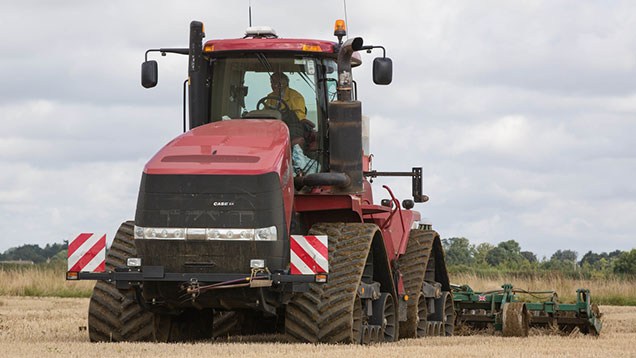Neonicotinoid emergency use approved for 5% of OSR area
 © Tim Scrivener
© Tim Scrivener An emergency application for farmers to use neonicotinoid seed treatments on oilseed rape this summer has been approved – but only for 5% of the total crop area in England.
The NFU’s second request for farmers to use neonicotinoid-treated rapeseed was approved by Defra on Wednesday (22 July).
However, the derogation will only apply to a limited area of 5% of the oilseed rape crop, amounting to 30,000ha.
See also: NFU makes second ‘emergency’ request for neonicotinoids
The NFU said it was “frustrated” at having to put in an application for a smaller area, which will not help farmers throughout the rest of the country.
The products which growers will be able to have access to are Bayer CropScience’s Modesto (clothianidin) and Syngenta’s Cruiser OSR (thiamethoxam).
The emergency use has been granted for 120 days. Discussions on the logistics of distributing the seed are under way.
NFU vice-president Guy Smith said: “The NFU has worked relentlessly to submit a robust application and we’re glad to finally see a positive result.
“However, we know that this isn’t enough – flea beetle threat is a widespread problem on a national scale and the extremely limited nature of this authorisation is unfortunately not going to help the vast majority of farmers in need of the protection.
“We will ensure that this approval is made the most of, both logistically and through the detailed monitoring of the crop for useful data.
“We will also call on Defra to contribute to solutions for the many farmers whose crops are significantly threatened by flea beetle but will not have access to these products.”
Guy Smith, NFU
“We will also call on Defra to contribute to solutions for the many farmers whose crops are significantly threatened by flea beetle but will not have access to these products.”
NFU combinable crops board chairman Mike Hambly said: “The principle of this authorisation is the point we need to focus on; the government has recognised the problem and has given a restricted number of farmers a solution, which is better than no solution at all.
“However, many farmers who are persevering with oilseed rape will have already committed to seed orders and the possibilities of getting the seed appropriately dressed across the range of varieties available is verging on impossible.
“We will now look to work with the regulators towards more efficient authorisations after the arduous process we have been through to get to this point.”
A Defra spokesman said: “We have fully applied the precautionary ban on the use of neonicotinoids introduced by the EU, and we make decisions on pesticides based on the science only once the regulators are satisfied they are safe to people and the environment.
“Based on the evidence, we have followed the advice of the UK Expert Committee on Pesticides and our chief scientist that a limited emergency authorisation of two pesticides requested by farmers should be granted in areas where oilseed rape crops are at greatest risk of pest damage.”
